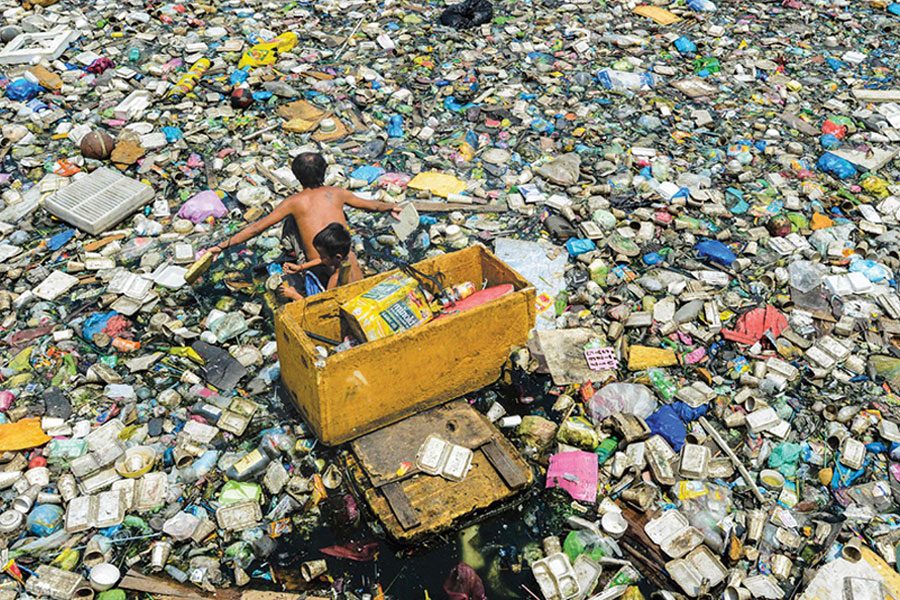Institute for Sustainability and Energy launches Program on Plastics, Ecosystems and Public Health Program
Source: Northwestern Institute for Sustainability and Energy
Plastic in Manila, Philippines. The Program on Plastics, Ecosystems and Public Health aims to investigate the effects of plastic usage.
April 24, 2019
The Institute for Sustainability and Energy has launched the Program on Plastics, Ecosystems and Public Health Program, a science initiative that researches the lifespan of plastic products, its implications on the environment and searches for solutions to alleviate the impact of plastic.
According to an ISEN release, the program will prioritize researching the effects of plastic on public health and exploring alternative materials that are environmentally neutral or restorative.
With more plastic waste being produced than ever before, the environment and its inhabitants are feeling the effects, according to the release. Estimates show the ocean will have more plastic than fish by 2050, if recent trends continue, and microplastics have been found in everything from tap water to seafood to the human digestive tract.
The program will investigate these air, land and water dynamics and attempt to solve them through materials and product innovation.
“The scientific community recognizes the problem of plastic pollution, but more research must be done to understand how it moves through the environment and the extent of its impacts, and to discover deployable, cost-competitive solutions,” said engineering Prof. John Torkelson, a member of the program.
The program will bring faculty from a variety of academic departments at Northwestern and join their work with that of academic, civic, government and industrial partners.
ISEN managing director Demetria Giannisis said the interdisciplinary effort the program employs is one of its strengths.
“Operating through an agile innovation network is essential to our goal of accelerating discoveries at global scale to protect our vulnerable ecosystems and address uncertain human health impacts,” Giannisis said in the release. “Robust interdisciplinary collaboration is at the heart of this Program. We will continuously build and re-build our network to incorporate new partners from academia, industry, NGOs and funding sources as progress is made across the domain from basic research to breakthrough discoveries and solutions.”
Email: [email protected]
Twitter: @birenbomb












